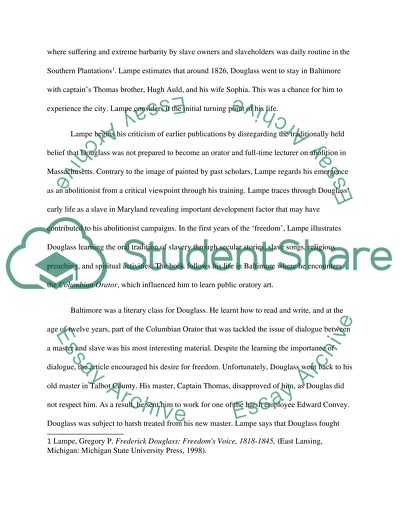Cite this document
(“Frederick Douglass: Freedom's Voice 1818-1845 Book Report/Review”, n.d.)
Frederick Douglass: Freedom's Voice 1818-1845 Book Report/Review. Retrieved from https://studentshare.org/history/1437031-book-review-frederick-douglass-freedom-s-voice
Frederick Douglass: Freedom's Voice 1818-1845 Book Report/Review. Retrieved from https://studentshare.org/history/1437031-book-review-frederick-douglass-freedom-s-voice
(Frederick Douglass: Freedom'S Voice 1818-1845 Book Report/Review)
Frederick Douglass: Freedom'S Voice 1818-1845 Book Report/Review. https://studentshare.org/history/1437031-book-review-frederick-douglass-freedom-s-voice.
Frederick Douglass: Freedom'S Voice 1818-1845 Book Report/Review. https://studentshare.org/history/1437031-book-review-frederick-douglass-freedom-s-voice.
“Frederick Douglass: Freedom'S Voice 1818-1845 Book Report/Review”, n.d. https://studentshare.org/history/1437031-book-review-frederick-douglass-freedom-s-voice.


